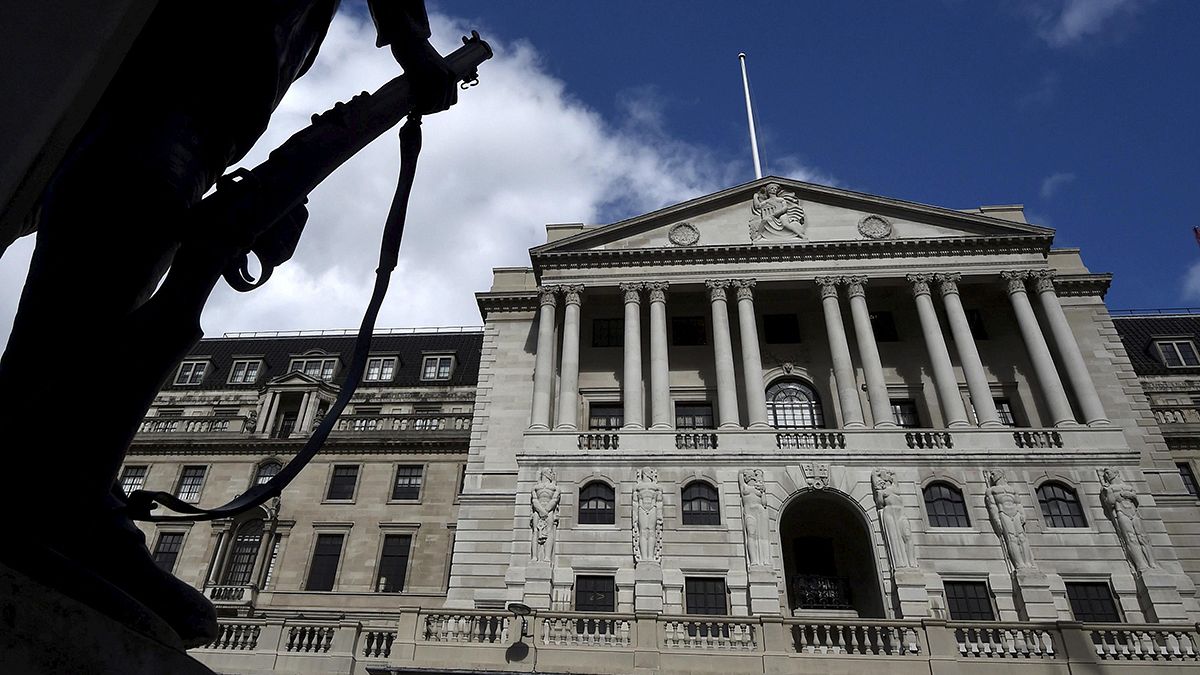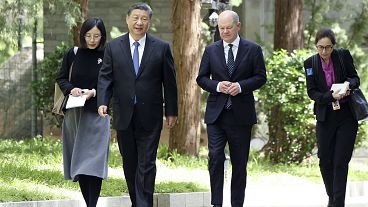The Bank of England has left the cost of borrowing unchanged in Britain - for now - which pushed down share prices in London and boosted the pound against the dollar and the euro.
The Bank of England has left the cost of borrowing unchanged in Britain – for now.
The main interest rate stays at 0.5 percent where it has been for more than seven years.
Governor Mark Carney has signaled there will be more stimulus during the summer, but he has expressed concern about what a big interest rate cut would do to the profits of UK based banks.
He has also said he would not want to follow the example of the European Central Bank and the Bank of Japan by cutting rates below zero.
Action is likely on August 4 when the Bank of England (BoE) is due to release its latest Inflation Report along with new growth forecasts.
Monetary policy summary and minutes of the MPC meeting ending on 13 July 2016 https://t.co/KxIXEgjl8c#BankRatepic.twitter.com/XZlgUZIV0c
— Bank of England (@bankofengland) July 14, 2016
Market analyst Mike Ingram at BGC Partners said not changing rates right now makes sense with the pound and the British government’s borrowing costs relatively stable: “Had they delivered an interest rate cut, you can be fairly sure that the market appetite for further cuts would have remained insatiable. That is what we have seen elsewhere in the world and ultimately that might have had some very unfortunate feedback effects into gilt markets, maybe international investors starting to demand a premium on sterling assets and who knows how that might have fed through into longer term interest rates, it might have actually had the opposite effect.”
Investors wrong-footed
The decision wrong-footed many investors who had expected an immediate rate cut to try to boost Britain’s economy, which has been hit by last month’s vote for the UK to leave the European Union – its biggest trading partner.
In reaction share prices slipped in London on Thursday and the pound rose in value by about one percent against the dollar and the euro, however currency experts expect sterling to fall further in the future.
“Given that officials left the door wide open for action in August, confirming Carney’s comments on policy easing over the summer, we will treat the positive knee-jerk reaction in sterling as providing a strategic selling opportunity,” said Charalambos Pissouros, senior analyst at IronFx Global.
“Potentially soft post-referendum data combined with expectations for August easing could bring sterling under renewed selling interest over coming weeks.”
“Saving their bullets” — analysts react to the Bank of England’s interest-rate shocker https://t.co/c9XzV02tRF
— MarketWatch (@MarketWatch) July 14, 2016
Avoiding recession
Now the question investors and businesses are asking is whether Britain can avoid falling back into recession.
Some economists said the BoE might consider joining forces with the new government to use public spending as a way to boost growth, something opposed by former finance minister George Osborne who stepped down on Wednesday.
“What chance the government finances investment projects using infrastructure bonds which the BoE ultimately buys?” David Owen, an economist with Jefferies, said in an email to clients.
Carney met new finance minister Philip Hammond on Thursday, shortly after Hammond said the government would do whatever was necessary to restore confidence in the economy.
Victoria Clarke, an economist at Investec, said it was possible the BoE and the government were preparing a coordinated package which could be announced in August. “Whatever we are to conclude, today’s Monetary Policy Committee minutes are certainly prepping markets for much more than just a rate cut on August 4,” she said.



